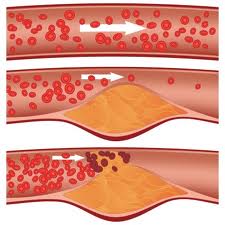Americans, perhaps unconsciously, consume salt far in excess of our daily requirement. So, on average how much salt are we ingesting- 3000 mg a day which is twice the recommended intake of 1500 mg a day.
Indeed, sodium is essential for bodily functions including maintaining a fluid and electrolyte balance in the body, nerve conduction and muscle contraction. Throughout much of human history salt was seen as a precious commodity and the focus was on maintaining adequate intake.
Did You Know: Potassium is Replaced with Sodium in Our Diet 
Now that focus has shifted as processed, preserved and manufactured foods became more prevalent and sodium intake increased. In fact one of the key shifts that occurs with food processing is the reversal of sodium potassium ratio: addition of sodium and removal of potassium. The majority of our sodium now comes from sauces, condiments, soups, canned foods, prepared mixes in addition to the ever popular fast food and pizza.
Ultimate Cost of Excessive Sodium Consumption
In an ideal world, our body should have a mechanism for getting rid of excess salt. In many individuals however the kidneys become overwhelmed by the excess of salt and are unable to excrete it. As sodium starts to accumulate in the body, water follows, leading to excess blood volume.  This increases the pressure within blood vessels and results in the heart having to work harder to push this excess volume through the circulation. This results in a vicious circle of hardening of the arteries as well as thickening of the heart muscle resulting in even higher blood pressure and congestive heart failure, chronic kidney disease. Thus starts the cycle of sodium accumulation resulting in even worse “sodium sensitivity” leading to hypertension, heart disease, strokes and kidney disease.
This increases the pressure within blood vessels and results in the heart having to work harder to push this excess volume through the circulation. This results in a vicious circle of hardening of the arteries as well as thickening of the heart muscle resulting in even higher blood pressure and congestive heart failure, chronic kidney disease. Thus starts the cycle of sodium accumulation resulting in even worse “sodium sensitivity” leading to hypertension, heart disease, strokes and kidney disease.
Problem is Wide Spread
75 million people in the US age 20 and older have hypertension (of those, 25% are unaware of their condition). Extensive research has shown that more than 2400 mg of sodium daily as associated with elevated blood pressure. With an average sodium intake of 3000 mg a day, we are all at risk of developing high blood pressure as a result of our food habits.
You Can Easily Turn It Around
Even with modest reduction in sodium intake we can see dramatic improvements in high blood pressure, heart attack risk and its resulting mortality.
In other words, restricting salt saves lives. So how much sodium should you reduce to?
The good news is that it’s easy to reduce your salt intake by gradually cutting back. The taste buds adjust naturally just as our ears adjust to increasing or decreasing the volume of music. By reading labels carefully and choosing fresh, unprocessed and low-sodium foods, substituting for salt whenever possible, we can easily reduce our intake to a more healthy level of 1500 mg a day.
This is low hanging fruit in our quest for wellness!
Be Well!
Dr. Pankaj Vij





This design is wicked! You certainly know how to keep a reader amused. Between your wit and your videos, I was almost moved to start my own blog (well, almost…HaHa!) Wonderful job. I really enjoyed what you had to say, and more than that, how you presented it. Too cool!
what do you suggest to help with sodium sensitivity? i have this… its amazing… i watch this like a hawk in my diet but when i consume and taste salt… i pay for this…how do you keep this in check? besides limitation? i wonder if i need more potassium or somehow balance this ratio.. sodium to potassium …
Without knowing many other factors, I can suggest to try natural salt, aka rock salt, aka sea salt. Your body needs to have some amount of sodium to retain water otherwise your body loses water quickly along with other necessary nutrients which you will need to continually replenish. If you don’t replenish you will feel tired or weak or even have headaches. Adding a banana to your diet will help as well. Also include Iodine food sources in your diet as sea salt does not provide enough. Be Well!